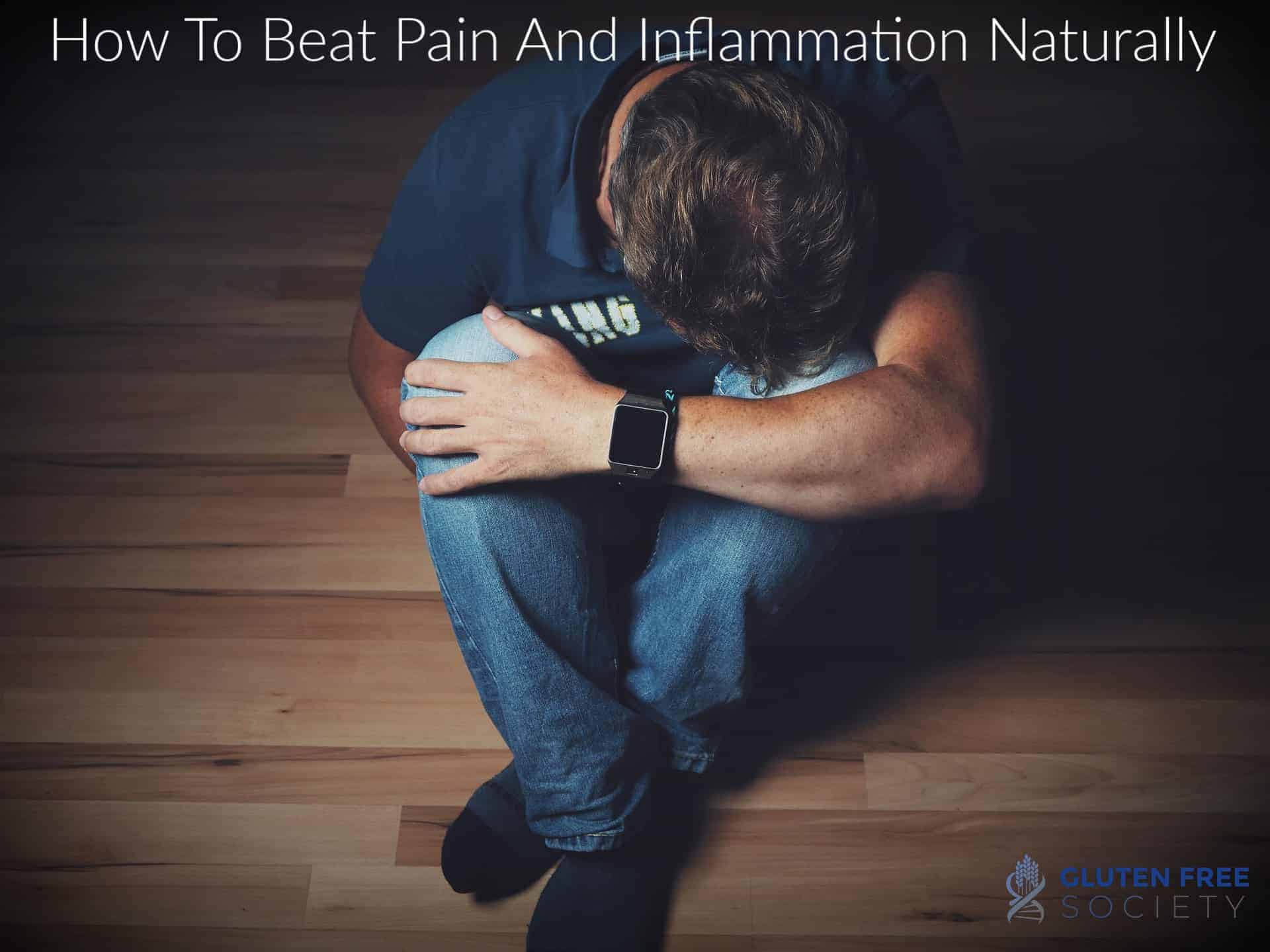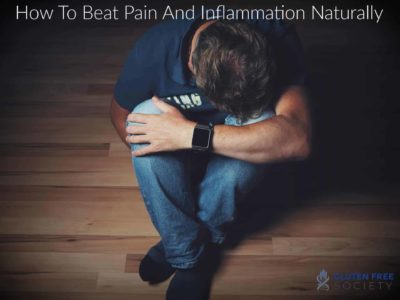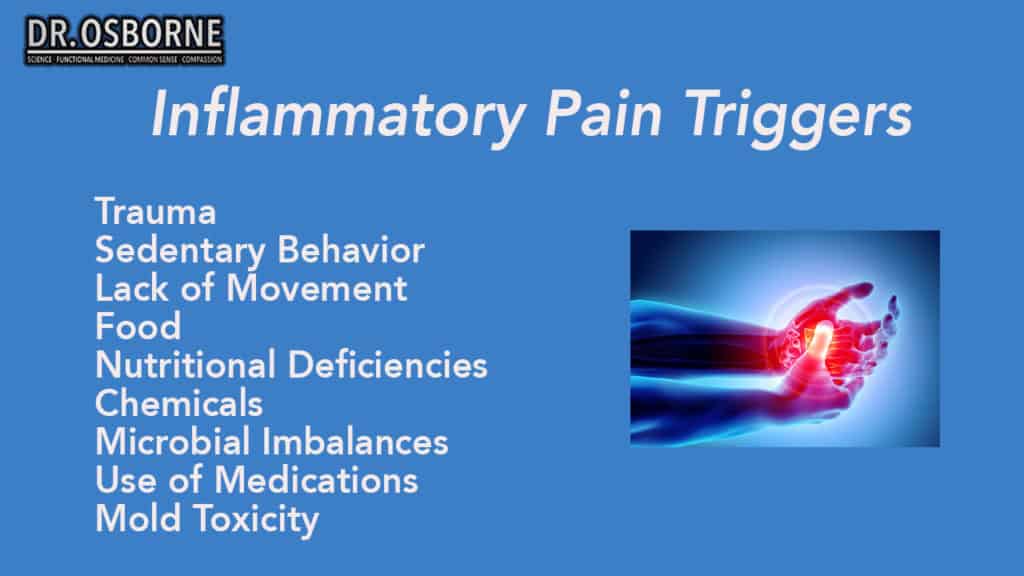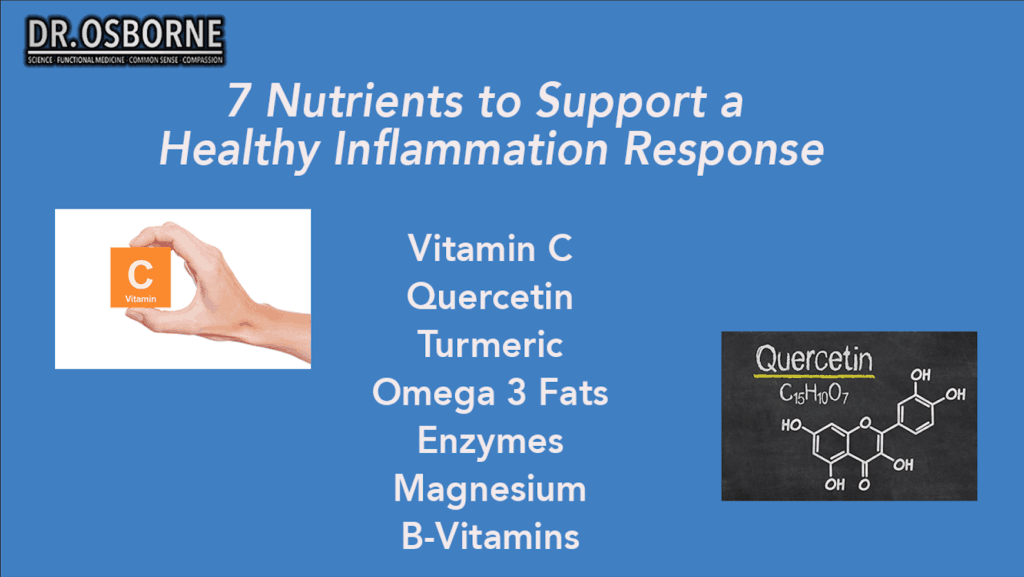new to the gluten free journey?
new to the gluten free journey?

 It’s no secret that millions of people around the world suffer from chronic pain and inflammation. They often run to their doctor for treatment and medicine trying to alleviate the problem rather than fixing it. What most are missing, however, is the knowledge to identify the source of the pain and inflammation and the tools to change it.
It’s no secret that millions of people around the world suffer from chronic pain and inflammation. They often run to their doctor for treatment and medicine trying to alleviate the problem rather than fixing it. What most are missing, however, is the knowledge to identify the source of the pain and inflammation and the tools to change it.
Contents
Toggle While most see inflammation as a negative reaction, it’s actually a normal and natural process. With trauma, for example, as in a sprain or strain, the body pushes fluid and blood to the area of injury to help itself heal. Naturally, this causes a period of intense inflammation.
It becomes a problem, however, when it is elevated to a chronic, or ongoing, issue. Because it is used in the body to tear down old tissue in order for it to be replaced, chronic inflammation can start a continual process of breaking down good tissue. However, because it’s a natural process, it’s important to find the source of chronic inflammation to deal with that issue, rather than blocking it out completely.
While most see inflammation as a negative reaction, it’s actually a normal and natural process. With trauma, for example, as in a sprain or strain, the body pushes fluid and blood to the area of injury to help itself heal. Naturally, this causes a period of intense inflammation.
It becomes a problem, however, when it is elevated to a chronic, or ongoing, issue. Because it is used in the body to tear down old tissue in order for it to be replaced, chronic inflammation can start a continual process of breaking down good tissue. However, because it’s a natural process, it’s important to find the source of chronic inflammation to deal with that issue, rather than blocking it out completely.
 One of the best ways to break through aches and an inflamed body is to get moving. This means incorporating some form of movement every half hour to an hour, in addition to a normal workout. If previously sedentary, there may be discomfort involved initially, but the body will adjust over time.
One of the best ways to break through aches and an inflamed body is to get moving. This means incorporating some form of movement every half hour to an hour, in addition to a normal workout. If previously sedentary, there may be discomfort involved initially, but the body will adjust over time.
 Another treatment to fight against an inflamed body is to start incorporating vitamins and minerals into the diet. This may be through eating real, clean food, or taking a multivitamin. However, there are some targeted approaches one can take as well, including:
Another treatment to fight against an inflamed body is to start incorporating vitamins and minerals into the diet. This may be through eating real, clean food, or taking a multivitamin. However, there are some targeted approaches one can take as well, including:
Stay up-to-date with the latest articles, tips, recipes and more.

*These statements have not been evaluated by the Food and Drug Administration. This product is not intended to diagnose, treat, cure or prevent any disease.
If you are pregnant, nursing, taking medication, or have a medical condition, consult your physician before using this product.
The entire contents of this website are based upon the opinions of Peter Osborne, unless otherwise noted. Individual articles are based upon the opinions of the respective author, who retains copyright as marked. The information on this website is not intended to replace a one-on-one relationship with a qualified health care professional and is not intended as medical advice. It is intended as a sharing of knowledge and information from the research and experience of Peter Osborne and his community. Peter Osborne encourages you to make your own health care decisions based upon your research and in partnership with a qualified health care professional.
4 Responses
How many months is the inflammation bundle good for?
Always looking for new info to reduce inflammation and stimulate healing.
Thanks for all you do.
Informative
Thank you for this information very helpful.